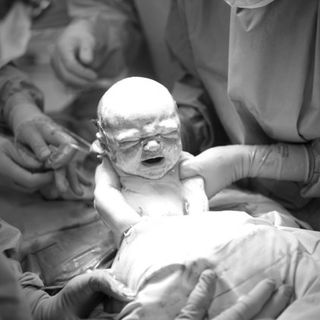An outbreak of measles with 40 fresh cases has been reported from central Mumbai, as per Hindustan Times. This is in addition to eight cases reported in January this year.
According to officials from the city’s governing civic body, the Brihanmumbai Municipal Corporation (BMC), none of the patients were vaccinated against the disease. They also suspect one measles-related death, although the presence of the virus is yet to be confirmed in the case.
“These cases are from areas where people and school officials have repeatedly refused vaccinations,” said a senior official from the BMC’s health department to HT.
Measles is a highly contagious viral disease that spreads through the air, and according to the World Health Organization (WHO), can lead to deaths among children. The U.S. Centers for Disease Control and Prevention (CDC) has said that measles can be prevented with the MMR or MR vaccines, which not only protect children against measles, but also rubella. (The MMR vaccine additionally protects children from mumps.)
Related on The Swaddle:
Everything You Want to Know About the MR Vaccine and the GoI Campaign Behind It
In 2018, the Government of India’s MR campaign to vaccinate school-going children reached Mumbai. It offered an additional two-dose vaccine, over and above the MMR shot regimen recommended by the Indian Academy of Pediatrics, to ensure full protection for children against measles and rubella, also a viral disease that is said to cause miscarriages or severe birth defects if contracted later in life during pregnancy. City doctors had said that even for children who had received their MMR shots earlier, there would be no harm in getting a second vaccination via the government-sponsored MR vaccine.
However, schools and parents remained divided over it. While some schools refused to take part in the campaign, parents worried a repeat of the MR vaccine would be an unnecessary and risky double dose. However, the only side effects reported during the campaign were mild and generic side effects possible from any vaccine: rashes, slight fever, dizziness, swelling and redness at the site of the injection. In addition to these, the BMC officials involved in the vaccine drive also had to grapple with problems such as student absenteeism on the day of vaccination.
This, according to the BMC, resulted in only 89% of the city being covered by the vaccination drive, as against the 95% coverage the WHO says is necessary to prevent an outbreak.
A surveillance medical officer from the WHO, Meeta Vashi, told HT, “These suspected new cases are an indication that the virus is circulating in these areas and the vaccination coverage is poor.”
Related on The Swaddle:
Measles Cases Up 50% Last Year Due to Anti‑Vax Misinformation, WHO Warns
Dr Padmaja Keskar, an executive health officer from the BMC added, “There are rumours that the vaccination will cause impotency. We have addressed them, involved religious leaders, but that hasn’t led parents to change their minds in high-refusal wards.”
Despite emerging reports of the outbreak, parents’ concerns about the vaccines’ safety and effectiveness have left an estimated 150,000 of 2.4 million of the city’s children without immunization, and doctors say that no amount of religious justifications or medical fears can help in preventing the disease.
“This additional MR vaccine is like 100% immunity against the disease. It’s to ensure that not only will you not get it, but you won’t spread it as well,” said Dr Jesal Sheth, a consultant neonatologist and pediatric intensivist at Mumbai’s Fortis Hospital, on an earlier occasion to The Swaddle.
Related:




